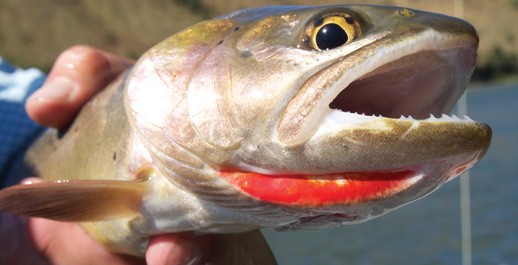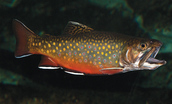|
Welcome to Mr. Walker's DC/AP Biology Webpage!
|
|
|
Syllabus for Dual Credit Biology and AP Biology Class:
Bonneville High School, Instructor: Mr. Walker
-Students can enroll in dual credit (DC) college credit or AP Biology or both. The state of Idaho provides funding for students to get college credits and to take the AP Biology exam. The scores you earn for college credit remain on your college transcript. The score you earn on the AP Biology exam may allow some universities to give you an elective credit (typically 4 or 5 on the exam). Caution: A poor score in the class may affect your college/high school GPA which may prevent scholarships or financial aid assistance.
Dual Credit Biology 1 (4 CWI Credits: BIOL 111)
This is an introductory college-level biology course for science majors. It will emphasize biological principles important in understanding living organisms to include: evolution, general biochemistry, cytology, Mendelian and molecular genetics, and ecology. Prior completion of CHEM 101 or CHEM 111 is strongly recommended. Dual credit biology 201B requires two trimesters of time to complete (trimester A and B). I am working on getting BIOL 202 Biology 2 for an additional 4 credits. That class would be covered in the 2nd and 3rd trimesters of the school year.
AP Biology Description
Advanced Placement Biology is a year-long (3 trimester) introductory college level survey course in Biology designed to prepare students for the College Board Advanced Placement examination that is given in early May. It will allow you to pursue in-depth analyses of biological concepts and gain an appreciation for the amazing workings of the living world. Because AP Biology represents the equivalent of a college-level introductory biology course, you can expect to be challenged by the material, and in turn will be expected to keep pace with a demanding schedule of reading assignments, laboratory investigations, and out-of-class assignments. All students enrolled in the class for AP biology are expected to take the AP Exam. In preparation for this test, students will be exposed to similar assessments throughout the course and will be required to complete both take home and in-class answers to free response questions for each unit of study. The course is organized around four Big Ideas in Biology: Evolution, Cellular Processes, Information Transfer and Biological Interactions. For each big idea, enduring understandings will be presented.
Students will be assessed on the learning objectives and science practices, which comprise the essential knowledge in the curriculum framework. Students will be provided with the curriculum framework to allow for self-assessment of learning as you move through the course. Much of the laboratory work will be inquiry-based and involve student directed investigations. Topics investigated will include: Evolution, Diffusion and Osmosis, Photosynthesis, Cellular Respiration, Mitosis and Meiosis, Molecular Biology, Animal Behavior, Enzyme Activity, and Energy Dynamics. Each unit of study is broken down into numerous topics.
Units of Study for DC/AP Biology classes:
Fall Semester Spring Semester_______________________
Unit 1 – The Chemistry of Life Unit 5 – Heredity
Unit 2 – Cell Structure and Function Unit 6 – Gene Expression and Regulation
Unit 3 – Cellular Energetics Unit 7 – Natural Selection
Unit 4 – Cell Communication and Cell Cycle Unit 8 – Ecology
Textbooks:. Biology, Campbell & Reece, 2011 9e, Benjamin Cummings Publisher
Laboratory Manual: College Board AP Biology Student Lab Manual: Investigative Labs: An Inquiry-Based Approach, 2012.
Student Evaluation:
· Grades will be determined using a total point system. and are broken down to include Unit Exams (40%), Labs (30%), Quizzes (5%), and Homework (25%). To determine your grade at any time during the marking period, add up all of the points you have earned on tests, quizzes, labs, and homework assignments. Divide this number by the total possible number of points. Grades will also be posted online and updated each week. I DO NOT round.
· Each unit will be assessed with a Unit Exam using the same format as the AP Exam. There will be multiple-choice questions, short free response questions, and a longer free response question.
· Conceptual understanding will also be assessed using quizzes and quick check for understandings.
· Laboratory assessments will follow several different formats: mini poster presentations, formal lab reports, experimental design outlines for student-designed experiments and laboratory practical’s and will reflect the AP Biology science practices.
· Late assignments are NEVER accepted.
· All written work is due at the beginning of class unless otherwise noted.
Make Up Policy:
· Attendance is extremely important in DC/AP level classes, especially on lab days. I expect all students to be present for class unless it is physically impossible for you to attend. This means scheduling college visits, medical/dental appointments, vacations, etc. at times which do not cause you to miss class. You will have one week to make up any missed assessments or labs, and assignments that were due the date of absence are due the next class meeting. I expect students to be responsible for requesting missed assignments and to complete them according to the class policies set forth here. Students can only make up excused or school excused absences.
Academic Honesty:
· All students are expected to follow the Bonneville High School academic honesty policy. It will be strictly enforced in DC/AP Biology.
Key to Success:
· I love teaching Biology. It is my sincere hope that you will love learning DC/AP Biology. It is a challenging, exciting, interesting and difficult class. You can expect me to support you in whatever way I can. In return, I ask that you work hard, be committed, and seek help if necessary. I can be reached at: walkerda@d93mail.com or visit my website at www.walkersclass.com
· Let’s have a fantastic year!
Bonneville High School, Instructor: Mr. Walker
-Students can enroll in dual credit (DC) college credit or AP Biology or both. The state of Idaho provides funding for students to get college credits and to take the AP Biology exam. The scores you earn for college credit remain on your college transcript. The score you earn on the AP Biology exam may allow some universities to give you an elective credit (typically 4 or 5 on the exam). Caution: A poor score in the class may affect your college/high school GPA which may prevent scholarships or financial aid assistance.
Dual Credit Biology 1 (4 CWI Credits: BIOL 111)
This is an introductory college-level biology course for science majors. It will emphasize biological principles important in understanding living organisms to include: evolution, general biochemistry, cytology, Mendelian and molecular genetics, and ecology. Prior completion of CHEM 101 or CHEM 111 is strongly recommended. Dual credit biology 201B requires two trimesters of time to complete (trimester A and B). I am working on getting BIOL 202 Biology 2 for an additional 4 credits. That class would be covered in the 2nd and 3rd trimesters of the school year.
AP Biology Description
Advanced Placement Biology is a year-long (3 trimester) introductory college level survey course in Biology designed to prepare students for the College Board Advanced Placement examination that is given in early May. It will allow you to pursue in-depth analyses of biological concepts and gain an appreciation for the amazing workings of the living world. Because AP Biology represents the equivalent of a college-level introductory biology course, you can expect to be challenged by the material, and in turn will be expected to keep pace with a demanding schedule of reading assignments, laboratory investigations, and out-of-class assignments. All students enrolled in the class for AP biology are expected to take the AP Exam. In preparation for this test, students will be exposed to similar assessments throughout the course and will be required to complete both take home and in-class answers to free response questions for each unit of study. The course is organized around four Big Ideas in Biology: Evolution, Cellular Processes, Information Transfer and Biological Interactions. For each big idea, enduring understandings will be presented.
Students will be assessed on the learning objectives and science practices, which comprise the essential knowledge in the curriculum framework. Students will be provided with the curriculum framework to allow for self-assessment of learning as you move through the course. Much of the laboratory work will be inquiry-based and involve student directed investigations. Topics investigated will include: Evolution, Diffusion and Osmosis, Photosynthesis, Cellular Respiration, Mitosis and Meiosis, Molecular Biology, Animal Behavior, Enzyme Activity, and Energy Dynamics. Each unit of study is broken down into numerous topics.
Units of Study for DC/AP Biology classes:
Fall Semester Spring Semester_______________________
Unit 1 – The Chemistry of Life Unit 5 – Heredity
Unit 2 – Cell Structure and Function Unit 6 – Gene Expression and Regulation
Unit 3 – Cellular Energetics Unit 7 – Natural Selection
Unit 4 – Cell Communication and Cell Cycle Unit 8 – Ecology
Textbooks:. Biology, Campbell & Reece, 2011 9e, Benjamin Cummings Publisher
Laboratory Manual: College Board AP Biology Student Lab Manual: Investigative Labs: An Inquiry-Based Approach, 2012.
Student Evaluation:
· Grades will be determined using a total point system. and are broken down to include Unit Exams (40%), Labs (30%), Quizzes (5%), and Homework (25%). To determine your grade at any time during the marking period, add up all of the points you have earned on tests, quizzes, labs, and homework assignments. Divide this number by the total possible number of points. Grades will also be posted online and updated each week. I DO NOT round.
· Each unit will be assessed with a Unit Exam using the same format as the AP Exam. There will be multiple-choice questions, short free response questions, and a longer free response question.
· Conceptual understanding will also be assessed using quizzes and quick check for understandings.
· Laboratory assessments will follow several different formats: mini poster presentations, formal lab reports, experimental design outlines for student-designed experiments and laboratory practical’s and will reflect the AP Biology science practices.
· Late assignments are NEVER accepted.
· All written work is due at the beginning of class unless otherwise noted.
Make Up Policy:
· Attendance is extremely important in DC/AP level classes, especially on lab days. I expect all students to be present for class unless it is physically impossible for you to attend. This means scheduling college visits, medical/dental appointments, vacations, etc. at times which do not cause you to miss class. You will have one week to make up any missed assessments or labs, and assignments that were due the date of absence are due the next class meeting. I expect students to be responsible for requesting missed assignments and to complete them according to the class policies set forth here. Students can only make up excused or school excused absences.
Academic Honesty:
· All students are expected to follow the Bonneville High School academic honesty policy. It will be strictly enforced in DC/AP Biology.
Key to Success:
· I love teaching Biology. It is my sincere hope that you will love learning DC/AP Biology. It is a challenging, exciting, interesting and difficult class. You can expect me to support you in whatever way I can. In return, I ask that you work hard, be committed, and seek help if necessary. I can be reached at: walkerda@d93mail.com or visit my website at www.walkersclass.com
· Let’s have a fantastic year!




